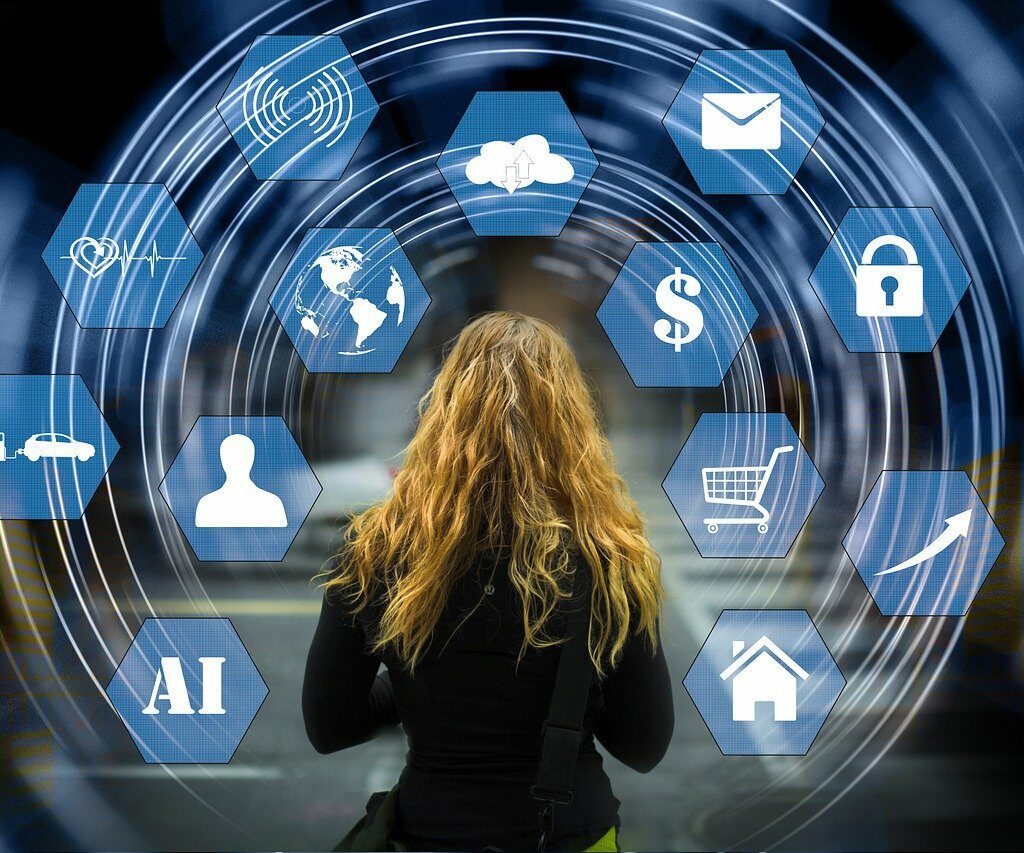The concept of Atmanirbhar India, or self-reliant India, has gained significant momentum in recent years. It aims to foster economic growth and development by reducing dependency on imports and harnessing domestic resources. One of the key drivers of this transformation is the rapid integration of artificial intelligence (AI) across various sectors. The AI revolution in India is poised to bring about unprecedented advancements and catalyze the nation’s journey towards becoming a global powerhouse in technology and innovation.
Introduction
In today’s interconnected world, achieving self-reliance is of paramount importance for any nation. Atmanirbhar India embodies the vision of harnessing indigenous capabilities to fuel growth, create employment opportunities, and drive sustainable development. AI, with its immense potential, is playing a pivotal role in this endeavour.
The AI revolution in India encompasses a wide range of applications and is transforming key sectors such as agriculture, healthcare, education, manufacturing, governance, banking and finance, defence and security, and social impact. Let’s explore how AI is reshaping each of these domains.
AI in Agriculture

AI is revolutionizing the agricultural landscape in India, offering innovative solutions to address the challenges faced by farmers. With AI-powered systems, farmers can optimize crop productivity by leveraging real-time data on weather conditions, soil health, and crop diseases. Precision farming techniques, enabled by AI, allow for accurate irrigation, fertilization, and pest control, resulting in higher yields and reduced resource wastage. AI algorithms can also detect and diagnose crop diseases, enabling timely interventions and minimizing crop losses.
AI in Healthcare
The healthcare sector in India is undergoing a profound transformation with the integration of AI. AI algorithms can analyze medical images, such as X-rays and MRIs, with remarkable accuracy, aiding in the early detection of diseases and providing more precise diagnoses. AI-enabled telemedicine platforms enable remote consultations, expanding access to quality healthcare services, especially in rural areas. Predictive analytics powered by AI can identify patterns and risk factors, allowing for proactive measures in disease prevention and management. Furthermore, AI-driven chatbots and virtual assistants enhance patient engagement and the overall healthcare experience.
AI in Education
AI is reshaping the education landscape in India, empowering both students and educators. Personalized learning experiences are facilitated through AI algorithms that adapt content and pace according to individual needs and abilities. Intelligent tutoring systems provide customized guidance and support, assisting students in their learning journeys. AI-driven assessments and feedback mechanisms offer real-time evaluation and targeted recommendations for improvement. By harnessing the power of AI, education in India is becoming more inclusive, engaging, and effective.
AI in Manufacturing
The manufacturing industry is embracing AI technologies to drive efficiency and productivity. Automation is being leveraged through AI-powered robots and machines, streamlining production processes and reducing human errors. Predictive maintenance algorithms analyse machine data to identify potential faults or breakdowns, enabling proactive maintenance and minimizing downtime. Quality control and defect detection systems equipped with AI can identify product defects with high accuracy, ensuring higher standards and customer satisfaction. The integration of AI in manufacturing is paving the way for advanced smart factories and industry 4.0 initiatives in India.
AI in Governance
AI is revolutionizing governance and public services in India, making cities smarter and more efficient. Smart city initiatives utilize AI-driven systems to optimize energy consumption, manage waste, and enhance citizen services. Intelligent transportation systems powered by AI enable real-time traffic management, reducing congestion and improving transportation efficiency. Data-driven decision-making facilitated by AI analytics helps policymakers in formulating evidence-based strategies for urban development. By leveraging AI, India is paving the way for efficient and sustainable governance.
AI in Banking and Finance
The banking and finance sector is witnessing the transformative power of AI. AI algorithms are employed for fraud detection and prevention, analyzing vast amounts of data to identify suspicious transactions and patterns. Automated customer service chatbots provide instant assistance, improving customer experience and reducing response times. AI-powered investment strategies utilize advanced algorithms to analyze market trends, making data-driven investment decisions. The integration of AI in banking and finance is enhancing security, efficiency, and customer-centricity in the industry.
AI in Defense and Security
AI technologies are bolstering defence and security capabilities in India. Surveillance systems equipped with AI can monitor vast areas and identify potential threats, enhancing situational awareness. Cybersecurity defences are strengthened through AI algorithms that detect and respond to sophisticated cyber-attacks in real time. Autonomous systems, powered by AI, are being developed for defense purposes, reducing human risk and enhancing operational efficiency. The integration of AI in defense and security is ensuring a robust and technologically advanced defense infrastructure for the nation.
AI in Social Impact
AI has the potential to address societal challenges and contribute to social welfare programs in India. AI-driven solutions can optimize the allocation of resources in social welfare schemes, ensuring efficient and targeted delivery of benefits. In disaster management, AI algorithms can analyze data to predict and mitigate the impact of natural disasters, enabling timely evacuation and relief efforts. Additionally, AI can help bridge the gap in access to education, healthcare, and other essential services in remote and underserved areas. The social impact of AI in India is immense, transforming lives and promoting inclusivity.
Challenges and Opportunities
While the AI revolution presents unprecedented opportunities, it also comes with challenges. Ethical considerations surrounding AI usages, such as privacy, bias, and accountability, need to be carefully addressed to ensure responsible and fair implementation. Skilling and talent development programs are crucial to equip the workforce with the necessary AI expertise. It is essential to strike a balance between automation and job creation, ensuring that AI technologies augment human capabilities rather than replace them. By addressing these challenges, India can leverage the full potential of AI to create a prosperous and inclusive society.
Conclusion
The AI revolution is reshaping India’s journey towards becoming an Atmanirbhar nation. Through its integration across various sectors such as agriculture, healthcare, education, manufacturing, governance, banking and finance, defence and security, and social impact, AI is transforming the way we live, work, and interact. By harnessing the power of AI, India is poised to achieve self-reliance, foster innovation, and drive sustainable growth. As the AI ecosystem continues to evolve, it is crucial to embrace this revolution and leverage its immense potential for the betterment of the nation and its citizens.
FAQs
1. How is AI transforming the agricultural sector in India?
AI is revolutionizing agriculture in India by enhancing crop productivity, enabling precision farming techniques, and providing AI-powered solutions for pest detection and control. This improves yields, reduces resource wastage, and minimizes crop losses.
2. What are the benefits of AI in healthcare?
AI in healthcare enables improved diagnosis and treatment through accurate analysis of medical images. It also facilitates AI-enabled telemedicine, predictive analytics for disease prevention, and AI-driven chatbots for patient engagement and support.
3. How can AI revolutionize education in India?
AI revolutionizes education in India by providing personalized learning experiences, intelligent tutoring systems, and AI-driven assessments. It adapts to individual needs, enhances guidance, and offers real-time evaluation and feedback.
4. What role does AI play in manufacturing industries?
AI plays a significant role in manufacturing industries by enabling automation, predictive maintenance, and quality control. It streamlines production processes, minimizes downtime, and ensures higher product standards.
5. How is AI improving governance and public services?
AI improves governance and public services by enabling smart city initiatives, intelligent transportation systems, and data-driven decision-making. It optimizes resource usage, enhances transportation efficiency, and facilitates evidence-based policymaking.

